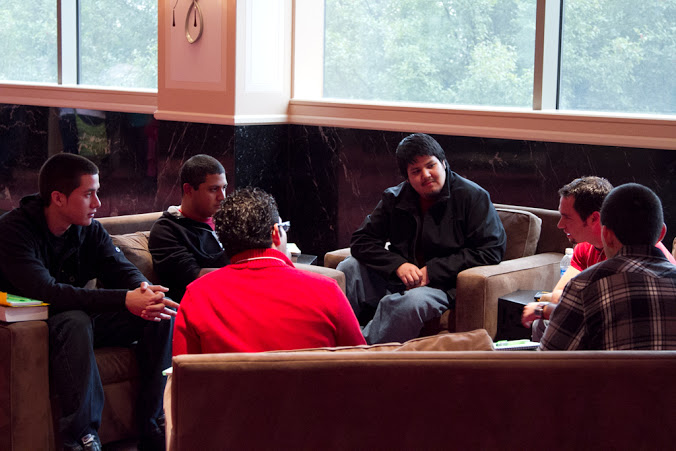.jpg)
I’ve heard many of my peers talk about the relevance and effectiveness of the ethnic specific ministries:
- Should ethnic specific ministries exist?
- Is it a broken model of ministry?
- Should we just give up?
These are important questions. However, I believe that there is an underlying assumption being made behind these questions. If we are not careful, this assumption is damaging and dangerous.
The assumption is that ethnic-specific church is always ethnocentric, insular, and self-centered. Or that an ethnic specific ministry is not as good as a multiethnic ministry.
The assumption is that ethnic-specific church is always ethnocentric, insular, and self-centered.
Or that an ethnic specific ministry is not as good as a multiethnic ministry. This assumption casts judgment on generations of vibrant, South Asian churches, Black churches, Korean churches, Spanish-speaking churches, Chinese churches, and many others.
This assumption is wrong and unfair. Ethnic-specific ministries are valid and important! Ethnic-specific and ethnocentric are not the same thing!
Perhaps the best way to differentiate between these two concepts is to describe them. Let me start with the an attempt to describe the ethnocentric church, and then I will describe the ethnic-specific church.
Characteristics of Ethnocentric Ministries
The ethnocentric church engages in the following kinds of behaviors:
- It uses “us versus them” language when describing people outside your ethnic community
- It believes that your ethnic culture culture is superior — the ministry is “culturally arrogant”
- It prevents or discourages members from crossing into new cultures
- It shames members for not being “South Asian enough” or for “selling out” or “being white”
- It has no concern for the struggles/issues faced by other ethnic communities
If you see your ministry exhibiting these kinds of characteristics, then it is drifting toward ethnocentricity. This kind of ministry will not move the mission of God forward — it is self-serving. I encourage you to steer your community away from these behaviors.
Characteristics of Ethnic Specific Ministries
The ethnic-specific church engages in the following behaviors:
- It fosters vibrant, healthy ethnic identity in its members — enjoy culture!
- It presents Jesus to non-Christian members of your ethnic community in a relevant, cultural way
- It promotes a spirit of hospitality for non-Christians and those outside of your ethnic group
- It casts vision for its members to form cross-cultural friendships and be an influence
- It partners with ministries outside of your ethnic community to renew the city, promote justice, engage in reconciliation
If you can help your community take on these characteristics, then you will help combat ethnocentric behavior. This kind of ministry is missional and cultural. Notice that both values coexist — these values are not mutually exclusive. You can be both!
Sure, this church might have people dressed in traditional clothing, singing in different languages, and enjoying certain kinds of food. But they are also being hospitable, open, and excited to share their culture/faith with others. They care about their non-Christian friends AND the rest of their campus and their neighborhood. This ministry is engaged… and quite enjoyable.
Some Diagnostic Questions for your Ministry

Clarify the difference by asking the following questions about your ethnic specific ministry?
- Are we concerned about how systemic injustices impact other minorities (i.e. Ferguson, immigration)?
- Are we concerned for the global church under persecution (i.e. ISIS, Africa, Asia, etc.)?
- Do I hear more about tradition or more about the manifold wisdom of the Gospel?
- When was the last time a non-Christian from your ethnic community visited, stayed, and believed?
- Do we engage in cultural celebrations to meet more members of your ethnic community in our city/campus?
- Do we make fun of others that are different from us ethnically, socially, etc.?
Every time your church gathers, it has the chance to swing the pendulum one way or the other. Being ethnocentric or ethnic-specific is not a static label, but it is a continuum. You must always be working on moving toward ethnic-specific — if not, you will drift toward ethnocentric behavior.
Do your best to move your church toward health. You can make a difference at your church. You are an Everyday World Changer. Start Today!
How would you classify your church? It is ethnocentric or ethnic-specific? Please comment below!
This post originally appeared on Linson’s blog.